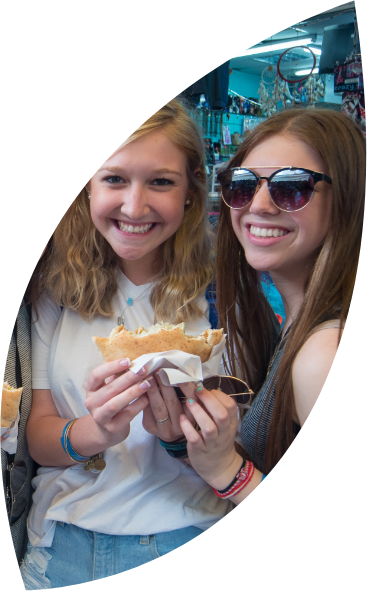Ultimate sports nutrition for sprinters: from 5 km to the marathon
All sprinters, whether amateur or professional, divide their lives into three training periods: Routine training is the longest period. This refers to the sprinter’s regular daily routine. Training becomes more intensive during preparation for a run or a race. This second period must be planned carefully: you must calculate the required training load, build a […]
All sprinters, whether amateur or professional, divide their lives into three training periods:
Routine training is the longest period. This refers to the sprinter’s regular daily routine. Training becomes more intensive during preparation for a run or a race. This second period must be planned carefully: you must calculate the required training load, build a sports nutrition program that matches the training load, improve body composition, and make sure you get optimal mental support. The third period may be the shortest, but it’s no less important: the day before the race. In this article, I’ll outline the ultimate sports nutrition plan for the 24 hours before a race.
5 KM Run
Energy requirements for a 5 km run are the same as your regular daily needs. So if you maintain regular meals and snacks, you’ll be able to run this distance easily.
Nutrition requirements for the day before a 5 km run are basic, the same as in the routine training period. Throughout the day, make sure you eat three main meals – breakfast, lunch and dinner. Every meal should include whole grains, animal and plant protein, and of course, vegetables, fruit and beneficial fats (avocado, olive oil, walnuts, tahini). Be sure to drink about 2 liters of water during the day.
The recommended quantity of carbohydrates is 150 grams in a menu of 1500 calories – for example, 4 slices of bread, one cup of cooked carbohydrate, 2 servings of fruit or 4 servings of vegetables.
About 20 minutes before the starting gun, eat a banana or a date.
10 KM Run
The energy requirements for a 10 km run are slightly higher than for a 5 km run, but still considered basic.
In the 24 hours before the run, you should follow the basic rules of sports nutrition and up the quantity of carbohydrates slightly. There’s no need to “load” carbs – but on the other hand, you shouldn’t reduce carbs. So what should you eat? Whole grains such as bread and spaghetti, combined with protein, vegetables, fruit, and healthy fats. Drink about 2 liters of water, and in warm weather, add a liter.
The recommended quantity of carbohydrates is 200 grams in a menu of 1700-1800 calories – for example, 4 slices of bread, 200 grams of cooked carbohydrate or energy bars.
About one hour before the run, I recommend eating complex carbohydrates such as a slice of bread with a tablespoon of cheese, peanut butter or tahini, or an energy bar. If you eat two hours or more before the starting gun, add a banana / date about 15 minutes before the run begins.
Half Marathon and Marathon Runs
The energy requirements for the half marathon and marathon are higher than routine. Here nutrition plays a decisive role in optimal performance.
To fill those glycogen reserves to the maximum, in the 24-48 hours before the run you should up your carbohydrate consumption above the usual quantity. Choose carbs that are easy to digest such as pasta, potatoes, white rice and bread. Rely on your personal experience for the type of carb you choose. The recommended carbohydrate quantity for a half marathon is 3-7 grams per 1 kilo of body weight, and for the marathon, 5-10 grams per 1 kilo of body weight. The final quantity is determined by your running pace, your routine carb quantity during the training period, and other parameters.
In the half and full marathons, glycogen reserves are important, but fats are also an important source of energy. So increased consumption of good fats is also vital. Try snacking on almonds, add avocado or olive oil to your salad, and spread tahini on your bread.
It’s also important to consume quality protein such as eggs, meat and fish, milk products, soy products, or protein bars. The recommended daily quantity of protein is between 1.5-2 grams of protein per 1 kilo of body weight. Fruit and vegetables should be integrated into meals and in between them.
24 hours before a half marathon or marathon: eat only familiar foods and energy bars. Fuel your body with water at 40 ml per 1 kilo of body weight.
The recommended carb quantity for a half marathon is 300 grams in a menu of 3000 calories – for example, 2 pita breads, 50 grams of pretzels or energy bars.
The recommended carb quantity for a marathon is 500 grams in a menu of 3700 calories – for example, 3 pita breads, 100 grams of pretzels, 2 cups of juice, and of course, the traditional dish of pasta with tomato sauce that’s eaten before every marathon.
About 60-90 minutes before the starting gun is the time to eat complex carbohydrates such as a slice of bread with a tablespoon of cheese, peanut butter or tahini, or an energy bar. If you eat two hours or more before the starting gun, add a banana / date about 15 minutes before the run begins.
At 40 minutes into the run, and every 20-30 minutes, refuel your body with 30-90 grams of simple sugars per hour. For example: energy gel, a banana or a date, or an isotonic drink. This is a general recommendation, so listen to your body and refuel when you feel the need. In addition to refueling, it’s important to drink 400-800 ml of water per hour of running.


Leave a Reply